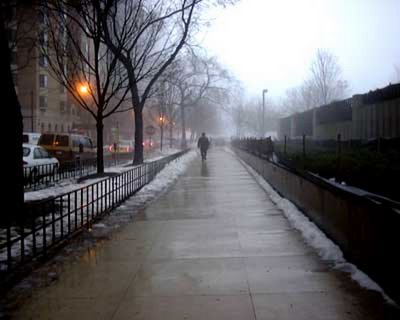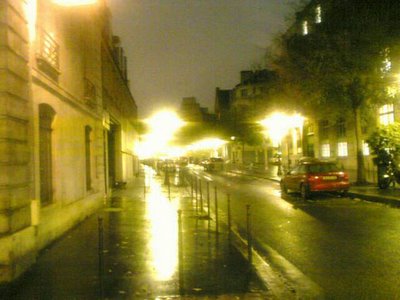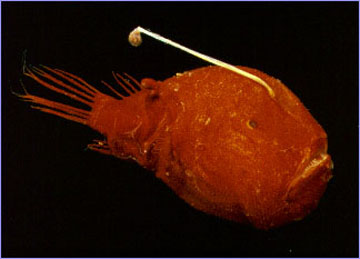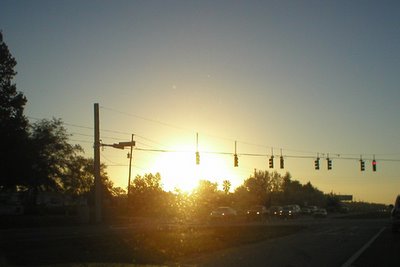A Song Is Not A Poem

While it may be true, as Joseph Campbell has asserted that much of the shaman’s function has been translated into that of the artist in our culture, I think the artist is far too narrow a mediator to handle the job. Pop-shamanism, perhaps, transformation via the numbers: it’s all about divining and defending an aesthetic code. The familiars and genii of art aren’t sure-footed enough to leap tree to tree all the way to the Under or Otherworld. Why? My guess is that though art can fly and fall with the baddest of angels, it is more about juggling the materials than adding to them. Consciousness has robbed us of our primal connections, giving us instead reflections of depths and tidy doors marked “Wilderness.”
Maybe the artist is what will have to do in these times, but I don’t expect much from them. Maybe there’s a peripheral madness to art, something with more fins on the backside, more terror to it ... the shaman’s song is the inside identity of the illness, without singing the song he would die ... maybe all the craft we have learned dams the ocean in our throat.
Not the artist but perhaps the whaler, or the midwife, or the addict, or the roadie, or the narcoleptic, or commuter who never quite gets home ... someone never quite solitary or solid again ...
***
Beyond the artist is “one who journeys;” IMO, that’s a much better handle on the contemporary similitudes to shamanism. Journeys to the underworld, to the heart of hearts, to the land beneath the sea, to everything betwixt I and Thou ...
But one must be unwilling to step too far into the spearing light for an apter definition. Whatever truly names it will have a sound but not a sense. Present but not, like faerie phosphor on a canvas which is painted and not. Dreams which are parallel yet serial, poking fish-heads out of the carpet and pouring silver through the ear waking when we sleep. And the threat, the menace, the malice in its recesses, observing, laughing low and steely, shadowing the enterprise like slow-winging mantas. The old horror of religion with all of that dismally pierced flesh. The rending of bone and the heaping of viscera onto the weighing-pan. The raw suturing with hands stained in gore. Time piecemeal and place viscous. Ancestors playing with children out back. Nothing linear enough to sustain longer than one sentence. The drum sounding not one’s heartbeat but its song, beating against the ribs like hooves, defiant of thunder and salt but not of the shrieking of wolves. How could one properly map where such a one has journeyed?
***
A recent NY Times article on new research into hypnosis shows that, as Blake said, “as the eye is formed, so are it’s powers.” We see what we believe, not vice versa. To quote from the article,
***
"... new research on hypnosis and suggestion is providing a new view into the cogs and wheels of normal brain function.
"One area that it may have illuminated is the processing of sensory data. Information from the eyes, ears and body is carried to primary sensory regions in the brain. From there, it is carried to so-called higher regions where interpretation occurs.
"For example, photons bouncing off a flower first reach the eye, where they are turned into a pattern that is sent to the primary visual cortex. There, the rough shape of the flower is recognized. The pattern is next sent to a higher - in terms of function - region, where color is recognized, and then to a higher region, where the flower’s identity is encoded along with other knowledge about the particular bloom.
"The same processing stream, from lower to higher regions, exists for sounds, touch and other sensory information. Researchers call this direction of flow feedforward. As raw sensory data is carried to a part of the brain that creates a comprehensible, conscious impression, the data is moving from bottom to top.
"Bundles of nerve cells dedicated to each sense carry sensory information. The surprise is the amount of traffic the other way, from top to bottom, called feedback. There are 10 times as many nerve fibers carrying information down as there are carrying it up.
These extensive feedback circuits mean that consciousness, what people see, hear, feel and believe, is based on what neuroscientists call “top down processing.” What you see is not always what you get, because what you see depends on a framework built by experience that stands ready to interpret the raw information - as a flower or a hammer or a face. ..."
***
OK: so there’s evidence shows that consciousness is feedback from primary sources, an eye focusing and interpreting what is seen out there. The circuit routes from world to word and back.
The mantic arts -- hypnotism, the talking cure, prayer, votive activities -- all shamanic in their way -- does something to that circuitry, so that word affect world.
Or perhaps there’s an inside to that circuitry, a deeper, perhaps more infernal conduit. There is a chironic flux of etheric energy which blueprints all physical form; practitioners of that form of healing intuit the ley lines of the world’s energy in the patient and attempt to get the grid back in sync with the world
The shaman does something similar, working from the lower regions up. Is this a conduit counter to the one described in the NY Times article, healing the upper regions with the lower wings of what might properly be called song though we have no such current proof of such a song. We are healed by what we know we don’t know. The greater power may be in the inferior conduit - from down up — drawing those complex and myriad conscious attentions downwards. The depths engage and infuriate Faust! All that brain power squeezing the world for its gold and a framework of golded expectation bedeviling every quest into perdition.
Since we can’t possess such knowledge, we have to barter for it, exchanging darker older bones for newer broken ones, doing time beyond to balance sums.
What derisive gifts are offered from below —wounds and sexual frenzy and freezing waters! The shaman WILLINGLY goes back down there, out of generosity, yes, out of self-healing, yes, but also, simply, because there is no other place to properly fall. Not madness but oh so infinitely close, the difference no wider than a virgin’s pube: possessed and in possession of it, as if one could master a thrall any more than the North Wind ...

A SONG IS NOT A POEM
Nov. 22, 2005
According to the testimony of
Belyavsky and others ... the Vogul
shaman displays keen intelligence,
a perfectly supple body, and an energy
which seems unbounded. His very
preparation for his future work leads
the neophyte to strengthen his body
and perfect his intellectual capabilities.
Among the Buryat the shamans are
the principal guardians of the rich
oral historic literature. The poetic
vocabulary of a Yakut shaman contains
12,000 words, whereas the ordinary
language -- the only language known
to the rest of the community -- has
only 4,000. Among the Kazak Kirgiz,
the baqca, “singer”, poet, musician,
diviner, priest, and doctor, appears
to be the guardian of religious and
popular traditions, preserver of legends
several centuries old.
-- Eliade, Shamanism: Archaic Techniques
of Ecstasy 30
I.
There’s a hard windy froth
to this late night, wracked
by a winter front stronger
than any subtropic dream
of sweetly curved orchard,
As I write the breezes tear
this way then that in hordes
of lone angst, tossing the
boughs of oaks and maples like
berserkers on black horses,
hacking this pale suburb
to so much cooling meat.
I do not own or control
such winds but I can write
of them at will, sustaining
their nor’eastering assault
in a tenor of fury bassed
by my father’s best ass-
to-the-pulpit voice,
a basso descending all
the way down past the
sea god to his sire, he
who first stitched together
Manannan’s crane-bag
of feral winds. It’s not art
as such and not poetry at
all, though the song rides
that vatic ship: the means
are poetic but rows further
out where a wilder god
than verse can can name
waits for me It’s too
impoverished and mad
to be rightly called a poem,
yet in fuller possession
too, since it’s only meant
for my walk through
every winter’s night to
You. These aching verbs
are not meant to woo
any woman of this earth
yet are immaculate
exactly in what I
sperm in them, remaking
the world the way real lovers
break like surf at Your
white shore shouting
“Holy Shit!” at the top
of their lungs. Of old there
were madmen and shamans
who were similar and not:
Suffering was the crossroads
where they met then diverged,
the one faring left to fall
from cliffs and drown
down the leagues of hell,
the other annealing every
toxic kiss with song,
suturing every wound
it had opened in the name
of sweet wombs. The
shaman’s suffering was
meant, I mean, not
simply marauded,
productive of the song
which culls cream from
the churn of all extremes,
buttering the buttcheeks
of every raw impulse
with divining seed, that
signature which also
bestows. The artist suffers
for art and never returns;
I get the feeling what You’re
thinking of is close but
not quite -- right wing
wrong dragon, right sepulchre
wrong haul, right meander
wrong lurch at the
center of night. The dream
is a part of sleep but only
shares the top leagues
of its swoon, diverging
from the deathlike descent
to open blue doors
further down where
everything riots revenant
in old and later colors
clefts and sounds.
II.
To wit, this next dream in
the tow: I opened my eyes
in sleep and found myself
at a beachside town I
once harrowed long ago
when I fell so deeply in
love with a woman’s wild
shape, arising and arousing,
it seemed back then,
from the ocean at first
light. I returned in the
the far beams of that sun,
now married and with
children; I wanted to
show them what marvels
I had once found there
but everything had changed,
gravel roads paved over,
small cottages of lust
with their sea-deepened cots
demolished for towering
condos which dammed
off the wild sea, salmon
and lime green walls
of a lost beachy ennui
thoroughly whitewashed
over. It seemed that
decades or centuries
had passed since I
last lost myself to a
woman from the sea,
and nothing remained of
those stolen hours but
prime real estate.
I thought I could meander
the dives and gravel streets
wearing a blindfold, so
familiar those old beach
days in my heart: But
wideyed I kept bumping
into walls where there
once there were halls,
all the while wondering
what became of the sea.
The lesson here, I guess,
in the infernal sense
of the rubrics You teach, is
that the way I thought it
was is not the way the
past turned out to be:
Ergo, as the heart so
believes, so what we
cherish occludes
the sea. Outside and safely
off this page the winds
blow on, hardly my
brothers at all, badass
hombres smashing down
the tiny shore that You
and I and She share,
wreaking what no poem
fully dares to altar, fuck,
or pour. The bulldozers
are waiting at the edge
of this small town, their
orange motors purring,
their riders in black with
wings like red sails ablood
and dripping in the wind:
They can’t wait to
publish these motions
in a white suburb so
large as to blot the
horizon of the sea
past every marge I know.
Aye, there’s the crossroads,
where art and this singing
diverge, the one lost to
Faustian romp and rapture,
and this one whole
spent, draining to a close,
every windy enough roar
now quieting to a dribble,
the last skull at last quiet,
my day in need of starting,
the sea its own white riot
which no poem can
every name.




















